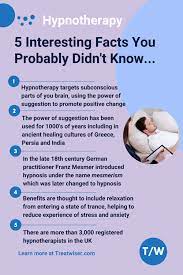Sleep Habits Improvement: How to Get Better Sleep and Wake Up Refreshed
Getting a good night’s sleep is essential for our physical and mental health. However, with the busy lives we lead, it can be challenging to get the recommended 7-9 hours of sleep per night. Poor sleep habits can lead to fatigue, decreased concentration, and irritability. In this article, we’ll explore some tips for improving your sleep habits so you can wake up feeling refreshed and ready to take on the day.
Stick to a schedule
Going to bed and waking up at the same time every day can help regulate your body’s internal clock. This means that you’ll feel sleepy at bedtime and awake in the morning without feeling groggy or tired. Aim for consistency even on weekends, as changing your sleep schedule can disrupt your body’s natural rhythm.
Create a relaxing bedtime routine
A relaxing bedtime routine can signal your body that it’s time to wind down and prepare for sleep. This could include taking a warm bath, reading a book, or listening to calming music. Avoid stimulating activities such as watching TV or using electronic devices before bed as they emit blue light that can interfere with your body’s production of melatonin, which is essential for regulating sleep.
Make your bedroom conducive to sleep
Your bedroom environment plays a significant role in getting quality sleep. Keep your room cool, dark, and quiet. Invest in comfortable bedding and pillows that support proper alignment of your neck and spine.
Limit caffeine intake
Caffeine is a stimulant that can interfere with falling asleep and staying asleep. Avoid consuming caffeine-containing beverages such as coffee, tea, or soda in the afternoon or evening.
Avoid alcohol before bed
While alcohol may make you feel drowsy initially, it disrupts the normal stages of sleep leading to less restorative rest overall.
Exercise regularly
Regular exercise can improve sleep quality and duration. However, avoid exercising too close to bedtime as it can stimulate your body and make it difficult to fall asleep.
Seek professional help
If you’ve tried these tips and still struggle with getting quality sleep, consider seeking professional help. A sleep specialist or therapist can help identify underlying causes of sleep problems and provide guidance on improving your sleep habits.
In conclusion, improving your sleep habits is crucial for overall health and well-being. By sticking to a schedule, creating a relaxing bedtime routine, making your bedroom conducive to sleep, limiting caffeine intake, avoiding alcohol before bed, exercising regularly, and seeking professional help if needed, you can improve the quality of your sleep and wake up feeling refreshed and energized.
7 Tips for Improving Your Sleep Habits: From Establishing a Regular Schedule to Avoiding Screens Before Bedtime
- Establish a regular sleep schedule and stick to it, even on weekends.
- Avoid naps during the day, as they can interfere with your nighttime sleep.
- Exercise regularly but avoid doing so too close to bedtime.
- Avoid caffeine and alcohol in the evening hours, as both can disrupt sleep.
- Make sure your bedroom is dark, quiet, and comfortable for sleeping purposes only (no TV or work).
- Try relaxation techniques (yoga, meditation, etc.) before bedtime to help you relax and fall asleep faster.
- Avoid looking at screens (phone, computer) at least one hour before bedtime as the blue light emitted from these devices can disrupt your circadian rhythm and make it harder to fall asleep quickly
Establish a regular sleep schedule and stick to it, even on weekends.
Establishing a Regular Sleep Schedule: The Key to Better Sleep Habits
One of the most important tips for improving your sleep habits is to establish and maintain a regular sleep schedule. This means going to bed and waking up at the same time every day, even on weekends. While it may be tempting to stay up late and sleep in on weekends, this can disrupt your body’s natural sleep-wake cycle, making it harder to fall asleep and wake up during the week.
By sticking to a regular sleep schedule, you’re training your body to know when it’s time to sleep and when it’s time to wake up. This helps regulate your body’s internal clock, which controls important functions such as hormone production, metabolism, and immune system function. When your internal clock is in sync with your external environment, you’ll feel more alert during the day and sleepy at night.
Establishing a regular sleep schedule can also help improve the quality of your sleep. When you go to bed and wake up at the same time every day, you’re more likely to get enough sleep each night. This means that you’ll feel more rested and refreshed in the morning, which can improve your mood, energy levels, and overall health.
To establish a regular sleep schedule, start by setting a consistent bedtime and wake-up time that allows for 7-9 hours of sleep per night. Stick to this schedule even on weekends or days off from work or school. If you need help falling asleep or waking up at the right time each day, consider using an alarm clock or setting reminders on your phone.
In conclusion, establishing a regular sleep schedule is an essential tip for improving your sleep habits. By going to bed and waking up at the same time every day, even on weekends, you can regulate your body’s internal clock and improve the quality of your sleep. So why not give it a try? Your body will thank you for it.
Avoid naps during the day, as they can interfere with your nighttime sleep.
Avoid Napping During the Day to Improve Your Sleep Habits
Napping during the day can be tempting, especially when we feel tired or have had a poor night’s sleep. However, taking a nap during the day can interfere with our nighttime sleep and lead to a vicious cycle of poor sleep habits. In this article, we’ll explore why avoiding naps during the day is essential for improving your sleep habits.
When we take a nap during the day, it can disrupt our natural circadian rhythm and make it difficult to fall asleep at night. This is because our bodies are designed to be awake during daylight hours and asleep at night. When we take a nap during the day, it sends a signal to our body that it’s time to be awake, making it harder to fall asleep at night.
Additionally, napping can reduce our sleep drive, which is the body’s natural urge to sleep when we’re tired. When we take a nap during the day, it reduces our need for sleep at night and can lead to difficulty falling asleep or staying asleep.
If you find yourself feeling tired during the day, instead of taking a nap, try going for a walk or doing some light exercise. This can help increase blood flow and oxygen levels in your body and help you feel more alert.
In conclusion, avoiding naps during the day is essential for improving your sleep habits. By sticking to a regular sleep schedule and avoiding daytime naps, you’ll be able to establish healthy sleeping patterns that will help you get better quality rest at night. So next time you feel tempted to take a daytime nap, opt for some light exercise instead and enjoy better quality rest at night!
Exercise regularly but avoid doing so too close to bedtime.
Exercise is an essential part of a healthy lifestyle, and it can also improve the quality and duration of your sleep. However, it’s important to time your workouts wisely to avoid disrupting your sleep patterns.
Exercising regularly can help reduce stress, anxiety, and depression, all of which can negatively affect your sleep. It can also increase the production of hormones that promote deep sleep and improve overall sleep quality.
However, exercising too close to bedtime can have the opposite effect. Physical activity stimulates the body and increases heart rate, making it harder to fall asleep. Additionally, exercising late in the day can disrupt your body’s natural circadian rhythm, making it more difficult to fall asleep at night and wake up in the morning.
To maximize the benefits of exercise on sleep while avoiding disruption to your nighttime routine, aim to finish your workout at least two hours before bedtime. This will give your body enough time to wind down and prepare for restful sleep.
In conclusion, regular exercise is an excellent way to improve the quality and duration of your sleep. However, timing is crucial when it comes to exercise and sleep habits improvement. By finishing your workout at least two hours before bedtime, you can enjoy all the benefits of physical activity while still getting a good night’s rest.
Avoid caffeine and alcohol in the evening hours, as both can disrupt sleep.
Sleep is an essential part of our daily routine, and getting enough quality sleep is crucial for our physical and mental health. However, many people struggle with getting a good night’s sleep due to poor sleep habits. One of the easiest ways to improve your sleep habits is by avoiding caffeine and alcohol in the evening hours.
Caffeine is a stimulant that can keep you awake and alert, making it difficult to fall asleep. It’s found in coffee, tea, soda, chocolate, and some medications. If you’re sensitive to caffeine or have trouble sleeping, it’s best to avoid consuming these products in the afternoon or evening hours.
Similarly, alcohol may make you feel drowsy initially but can disrupt your sleep cycle later on. It can lead to less restorative rest overall, leaving you feeling groggy and tired in the morning.
By avoiding caffeine and alcohol in the evening hours, you give your body a chance to wind down naturally and prepare for sleep. Instead of relying on these substances for relaxation or stimulation, try other methods such as taking a warm bath or reading a book before bed.
In conclusion, avoiding caffeine and alcohol in the evening hours is an easy way to improve your sleep habits. By making this small change, you can enjoy better quality sleep and wake up feeling refreshed and energized each morning.
Make sure your bedroom is dark, quiet, and comfortable for sleeping purposes only (no TV or work).
Make Your Bedroom a Sleep Haven: The Importance of a Dark, Quiet, and Comfortable Environment
When it comes to improving your sleep habits, the environment in which you sleep plays a significant role. Making sure your bedroom is dark, quiet, and comfortable for sleeping purposes only can help you achieve better quality sleep. Here’s why.
Darkness is essential for regulating sleep
Exposure to light can interfere with your body’s production of melatonin, a hormone that regulates sleep and wakefulness. This means that even small amounts of light from electronic devices or streetlights outside your window can disrupt your natural sleep cycle. Investing in blackout curtains or shades can help eliminate unwanted light and create a darker environment for better quality sleep.
Quietness reduces distractions
Noise from traffic, neighbors, or even snoring partners can disrupt your sleep and reduce its quality. Creating a quiet environment by using earplugs or white noise machines can help mask unwanted sounds and reduce distractions.
Comfort is key for relaxation
Your bed should be comfortable and supportive to promote relaxation. Invest in high-quality bedding that feels soft against your skin and pillows that support proper alignment of your neck and spine. Avoid using your bed as a workspace or entertainment center as this can create an association between wakefulness and the bedroom.
By making sure your bedroom is dark, quiet, and comfortable for sleeping purposes only, you’ll create an environment that promotes relaxation and better quality sleep. Investing in blackout curtains or shades, using earplugs or white noise machines to reduce noise distractions, and investing in high-quality bedding are simple steps you can take to improve the quality of your sleep. Remember that creating healthy sleep habits takes time but the benefits are worth it – better mood, improved concentration, reduced stress levels – just to name a few!
Try relaxation techniques (yoga, meditation, etc.) before bedtime to help you relax and fall asleep faster.
Relaxation Techniques: How Yoga and Meditation Can Help You Sleep Better
If you struggle with falling asleep at night, incorporating relaxation techniques such as yoga or meditation into your bedtime routine can be a game-changer. These practices can help you relax and calm your mind, making it easier to fall asleep and stay asleep throughout the night.
Yoga is an ancient practice that combines physical postures, breathing exercises, and meditation to promote relaxation and reduce stress. Practicing yoga before bed can help release tension in your body, slow down your breathing, and quiet your mind. Simple poses such as Child’s Pose or Legs Up the Wall can be done in bed to help you unwind and prepare for sleep.
Meditation is another powerful tool for promoting relaxation. By focusing on your breath or repeating a calming phrase or mantra, meditation can help quiet racing thoughts and ease anxiety. You can try guided meditations specifically designed for sleep or simply sit quietly for a few minutes before bed.
Other relaxation techniques that may be helpful include deep breathing exercises, progressive muscle relaxation, or taking a warm bath with Epsom salts.
When incorporating these techniques into your bedtime routine, it’s essential to set aside enough time to allow yourself to fully relax. Try turning off electronic devices at least an hour before bed to minimize distractions and create a calming environment.
Overall, incorporating relaxation techniques such as yoga or meditation into your bedtime routine can be an effective way to improve the quality of your sleep. By reducing stress and promoting relaxation, you’ll be able to fall asleep faster and wake up feeling more refreshed in the morning.
Avoid looking at screens (phone, computer) at least one hour before bedtime as the blue light emitted from these devices can disrupt your circadian rhythm and make it harder to fall asleep quickly
Avoiding Screens Before Bedtime: How Blue Light Can Impact Your Sleep
In today’s digital age, it’s common for people to spend hours staring at screens on their phones, computers, or tablets. However, research has shown that the blue light emitted from these devices can disrupt your sleep patterns and make it harder to fall asleep quickly. In this article, we’ll explore why avoiding screens before bedtime is crucial for improving your sleep habits.
Blue light is a type of light that can suppress the production of melatonin, a hormone that regulates sleep. Exposure to blue light in the evening can disrupt your circadian rhythm, which is your body’s natural clock that regulates your sleep-wake cycle. This can result in difficulty falling asleep and staying asleep throughout the night.
To avoid the negative effects of blue light on your sleep, it’s recommended to avoid looking at screens at least one hour before bedtime. This gives your body time to wind down and prepare for sleep without interference from blue light exposure.
Instead of scrolling through social media or watching TV before bed, try engaging in relaxing activities such as reading a book or taking a warm bath. These activities can help signal to your body that it’s time to wind down and prepare for restful sleep.
If you must use electronic devices before bed, consider using blue-light-blocking glasses or installing software on your device that filters out blue light emissions. These tools can help reduce exposure to blue light and promote better sleep quality.
In conclusion, avoiding screens before bedtime is essential for improving your sleep habits and promoting restful sleep. By minimizing exposure to blue light emitted by electronic devices, you can regulate your circadian rhythm and improve the quality of your sleep. So put away those screens at least an hour before bedtime and prioritize restful slumber for a healthier mind and body.




